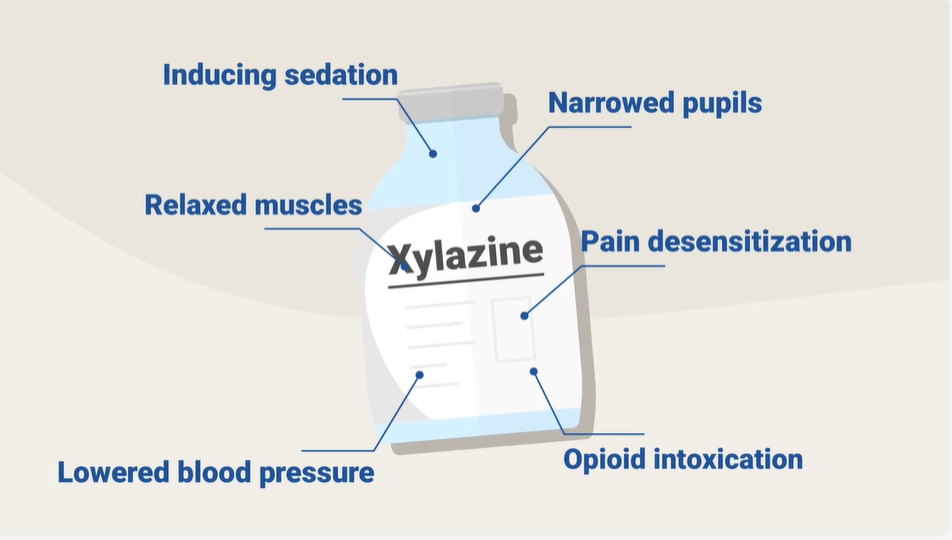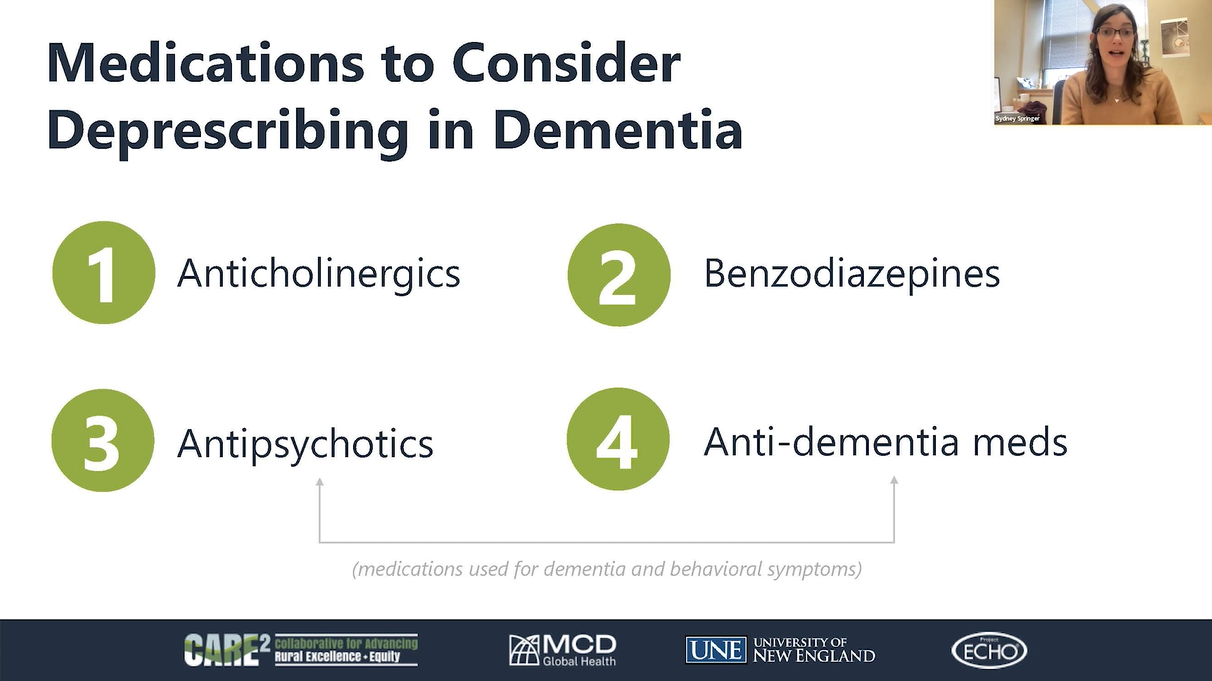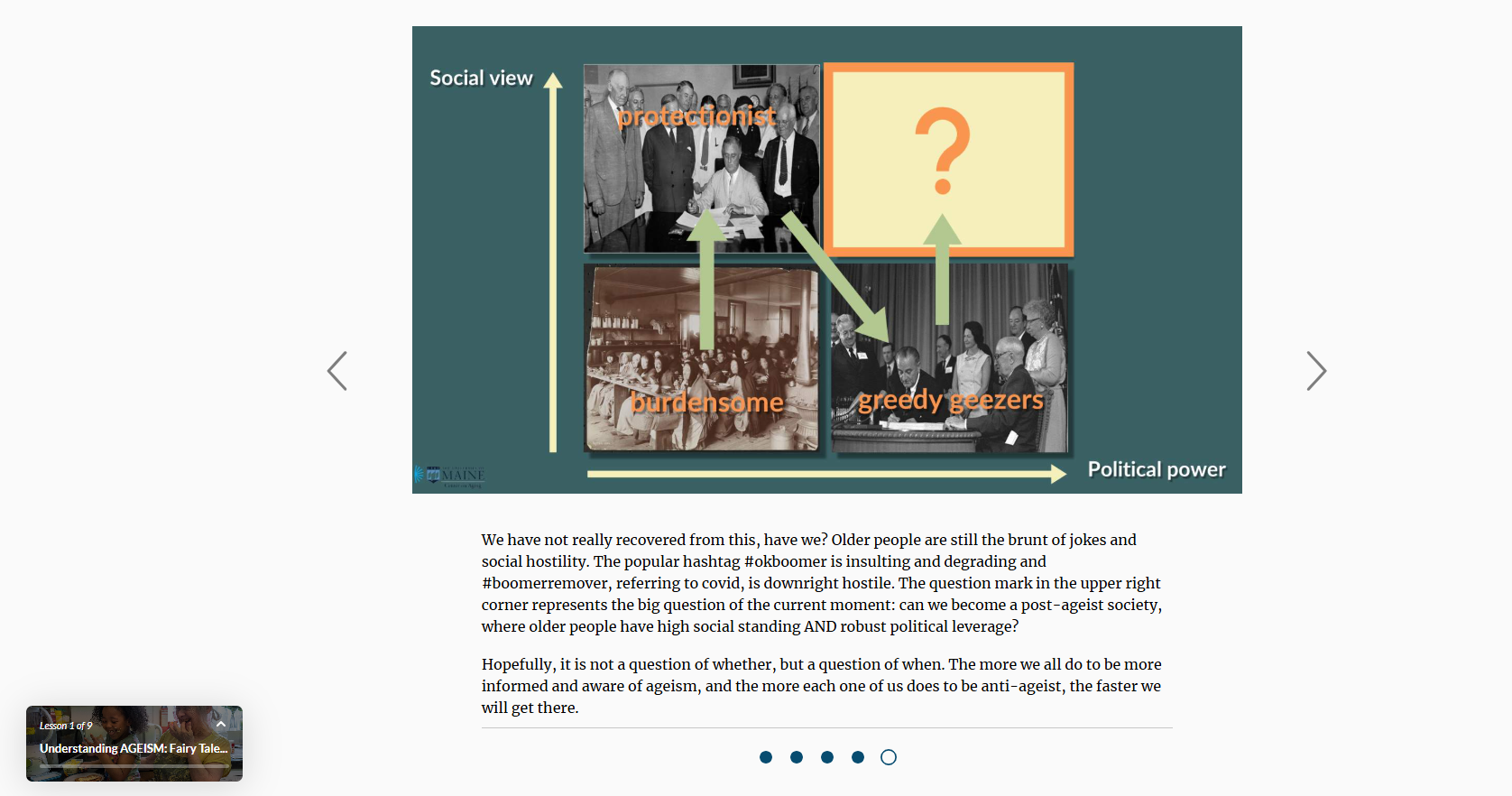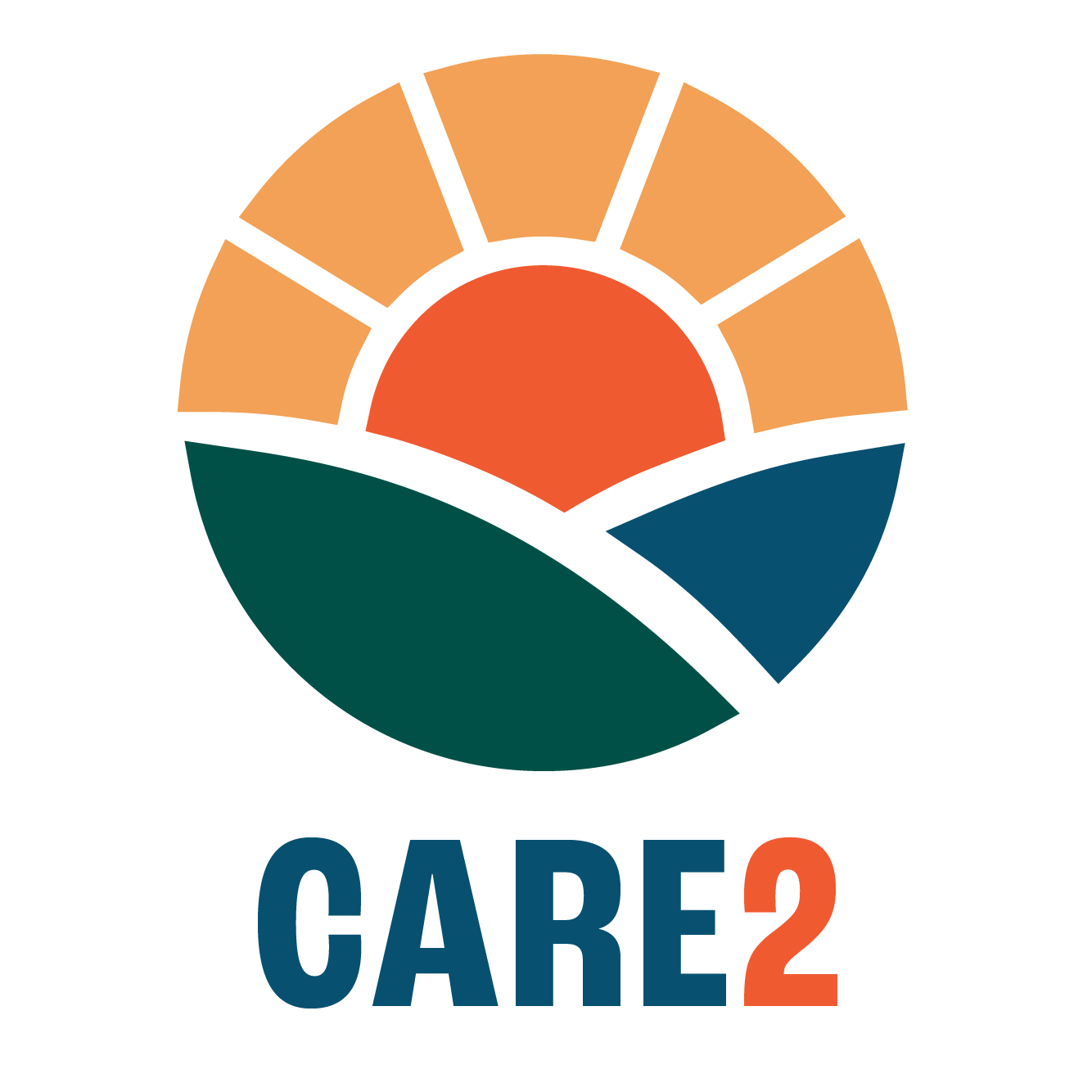Our Project ECHO didactics are easily digested at 15-20 minutes in length, and cover a range of topics focusing on evidence-based practices useful for rural behavioral health providers. Search and watch our didactics online, anytime.

COHORT 1: PROVIDING CARE FOR OLDER ADULTS DURING COVID
 Risks of Social Isolation and Loneliness for Older Adults during COVID-19
Risks of Social Isolation and Loneliness for Older Adults during COVID-19
 Virtual Volunteers: Using Technology to Address Social Isolation during COVID-19
Virtual Volunteers: Using Technology to Address Social Isolation during COVID-19
 Depression, Loneliness, and Well-Being
Depression, Loneliness, and Well-Being
 Long COVID: An Overview
Long COVID: An Overview
 Cognitive Decline, Dementia, Depression, COVID, or All of the Above?
Cognitive Decline, Dementia, Depression, COVID, or All of the Above?
COHORT 2: INTERDISCIPLINARY APPROACHES TO SUPPORT THOSE LIVING WITH MEMORY IMPAIRMENT
 What are the 4Ms and Why Do They Matter?
What are the 4Ms and Why Do They Matter?
 Mild Cognitive Impairment vs. Dementia
Mild Cognitive Impairment vs. Dementia
 The First M: Mentation
The First M: Mentation
 The Second M: What Matters
The Second M: What Matters
 The Third M: Medication
The Third M: Medication
 The Fourth M: Mobility
The Fourth M: Mobility
 Implementing the 4Ms: Formal Community Supports
Implementing the 4Ms: Formal Community Supports
 Implementing the 4Ms: Formal Clinical Supports
Implementing the 4Ms: Formal Clinical Supports
COHORT 3: HONORING AN INDIVIDUAL’S END-OF-LIFE PREFERENCES
 Attitudes About Death & Dying
Attitudes About Death & Dying
 Delirium, Dementia, and End of Life Planning
Delirium, Dementia, and End of Life Planning
 Person-Centered Tools for Honoring an Individual's End-of-Life Preferences
Person-Centered Tools for Honoring an Individual's End-of-Life Preferences
 Documenting and Communicating Decisions Around End-of-Life Preferences
Documenting and Communicating Decisions Around End-of-Life Preferences
 Considerations for Honoring End-of-Life Preferences Across Rural Communities
Considerations for Honoring End-of-Life Preferences Across Rural Communities
 Considerations for Honoring End-of-Life Preferences Across Marginalized Populations
Considerations for Honoring End-of-Life Preferences Across Marginalized Populations
 Telehealth as a Tool for Honoring End-of-Life Preferences
Telehealth as a Tool for Honoring End-of-Life Preferences
 Person-Centered Practices in Long-Term Care
Person-Centered Practices in Long-Term Care
 Policy, Rules, and Regulations
Policy, Rules, and Regulations
 Trauma-Informed Care in Long-Term Care
Trauma-Informed Care in Long-Term Care
 Impacts of Organizational Culture
Impacts of Organizational Culture
 Dignity of Risk
Dignity of Risk
 Deprescribing
Deprescribing
 Impacts
of Physical Environment
Impacts
of Physical Environment

COHORT 1: STIGMA, BIAS, AND THE PRINCIPLES OF HARM REDUCTION
 Deaths of Despair and Harm Reduction
Deaths of Despair and Harm Reduction
 Syringe Harm Reduction
Syringe Harm Reduction
 Stigma, Bias, & Trauma in Harm Reduction
Stigma, Bias, & Trauma in Harm Reduction
COHORT 2: Fostering Connections to Drive Assessment, Treatment, & Outcomes
 Coping with Xylazine in Street Opioids
Coping with Xylazine in Street Opioids
 Resourcefulness and Rural Substance Use Disorder Practice: Countering Stigma and Bias to Preserve Relationships
Resourcefulness and Rural Substance Use Disorder Practice: Countering Stigma and Bias to Preserve Relationships
 Substance Use and SUD in Adolescents
Substance Use and SUD in Adolescents
 Chronic Pain and Substance Use Disorder
Chronic Pain and Substance Use Disorder
 Motivational Interviewing for Substance Use Disorder: Influencing Behavior Change
Motivational Interviewing for Substance Use Disorder: Influencing Behavior Change
 Co-Occurring SUD & Infectious Disease
Co-Occurring SUD & Infectious Disease
 SUD Harm Reduction Strategies: Patient-Centered Treatment Planning
SUD Harm Reduction Strategies: Patient-Centered Treatment Planning
 Telehealth for SUD: Techniques for Assessment & Relationship Building
Telehealth for SUD: Techniques for Assessment & Relationship Building
COHORT 3: CORE AND EMERGING TOPICS IN AMBULATORY CARE
 Rural Substance Use Disorder Practice: Ambulatory Alcohol Withdrawal
Rural Substance Use Disorder Practice: Ambulatory Alcohol Withdrawal
 Caring for Under Resourced Rural Individuals
Caring for Under Resourced Rural Individuals
 Polysubstance Use: Xylazine
Polysubstance Use: Xylazine
 Practical Language Interventions in Primary Care
Practical Language Interventions in Primary Care
 Co-Occurring Bipolar Disorder and SUD
Co-Occurring Bipolar Disorder and SUD
 Emerging Trends in SUD: High Dose Initiation of Buprenorphine
Emerging Trends in SUD: High Dose Initiation of Buprenorphine
 Principles of Harm Reduction
Principles of Harm Reduction
 Stigma, Bias, and Trauma
Stigma, Bias, and Trauma
 Application of Harm Reduction Strategies - Donald McNally
Application of Harm Reduction Strategies - Donald McNally
 Application of Harm Reduction Strategies - John Burns
Application of Harm Reduction Strategies - John Burns
 Integrative Perspective on Harm Reduction
- Randy Stevens
Integrative Perspective on Harm Reduction
- Randy Stevens
 Integrative Perspective on Harm Reduction
- Jackie Bray
Integrative Perspective on Harm Reduction
- Jackie Bray
 The Brain - Addiction and Mental Heealth
The Brain - Addiction and Mental Heealth
 Foundations of Co-Occurring Disorders
Foundations of Co-Occurring Disorders
 Grief and Loss Due to Deaths Related to SUD & Suicide
Grief and Loss Due to Deaths Related to SUD & Suicide
 Caring for Each Other in the Workplace
Caring for Each Other in the Workplace

 5 Minutes or Fewer!
5 Minutes or Fewer!
This short informational video for providers outlines the risk and dangers of xylazine consumption, tips for counseling patients on what to expect during withdrawal, and the value of taking a harm reduction approach when treating patients who use substances with potential xylazine contamination.
WATCH ON VIMEO
 2.5 Hours
2.5 Hours
Join Dr. Sydney Springer from the University of New England as she teaches learners on various topics in deprescribing including having the patient conversation, deprescribing for dementia, and more. CEUs available.
Free on Telehealth Classroom
 6 Hours
6 Hours
In this course, you will learn about why we are so ageist, how ageism impacts our health and costs the US healthcare system billions of dollars, how we should respond to ageist behavior, and most importantly, what we can do to change our own ageist thinking and behaving and contribute to a more equitable, just society for all.
Free on Telehealth ClassroomMissed our conference booth? Get free sticker files to download and print.
sEND ME STICKERS
